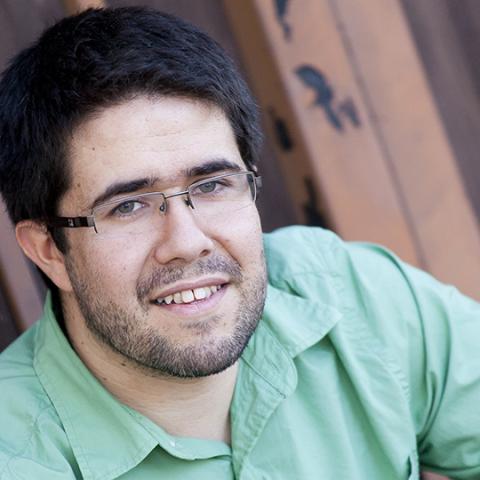Abstract
Abstract - Whenever we tilt our head towards the shoulder our eyes partially compensate by rotating around the line of sight in the opposite direction. This combination of head tilt and torsional eye movements results in a tilted retinal image, while we nevertheless perceive the world as still and upright. I will present the development of a new method to measure torsional eye movements reliably, which has enabled us to study the relationship between torsion and perception in the lab and the effects of vestibular loss in the clinic. I will show how stimulating the temporo-parietal cortex can alter perception of upright without affecting torsional eye movements, confirming the role of this area in the multisensory process maintaining upright perception. I will also present how patients can reweight different sensory inputs after acute vestibular loss and how measuring torsion helps us understand the effect of strong magnetic fields on the vestibular system.
https://vision.berkeley.edu/posts/welcome-dr-jorge-otero-milan
https://optometry.berkeley.edu/people/jorge-otero-millan-phd/
Improving Zoom accessibility for people with hearing impairments
People with hearing impairments often use lipreading and speechreading to improve speech comprehension. This approach is helpful but only works if the speaker’s face and mouth are clearly visible. For the benefit of people with hearing impairments on Zoom calls, please enable your device’s camera whenever you are speaking on Zoom, and face the camera while you speak. (Feel free to disable your camera when you aren’t speaking.)

